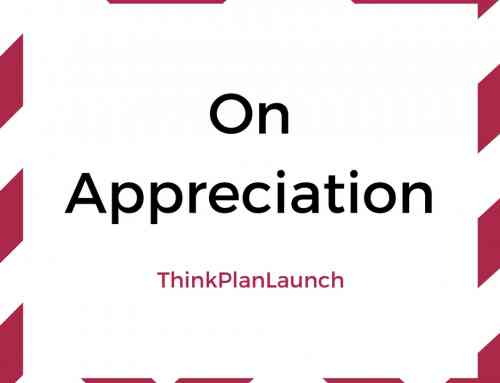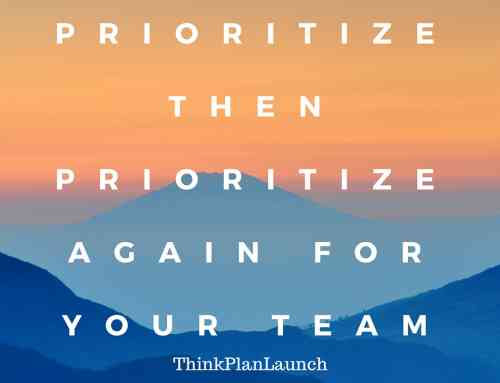Most of my life I’ve been surrounded by intelligent people, for which I consider myself fortunate. Most of my personal friends are smart, hard-working individuals. Most of my family members fall into this category, too.
When I say these people are “intelligent” and “smart,” I’m not just referring to IQ (normal intelligence). Most of them also have a high EQ (emotional intelligence). And many of them, even those unfamiliar with the work I do at ThinkPlanLaunch, also have a knack for behavioral intelligence and motivational intelligence.
To put it in layman’s terms, these folks have a nice combination of people skills, communication skills, self-management ability, and personal accountability. It’s no mistake many have risen to leadership positions, guiding others in the journey of life on small and large scales alike.
Table of Contents
Success stories.
One friend of mine runs a successful screen printing business, which he built from the ground up over nine years after his sports career ended suddenly with an injury (his wife recently joined him and has made equally impressive strides, too). Another friend defends the legal rights of average citizens with great success. Two more are senior software engineers, one likely on his way to his second successful startup exit, and the other likely on his way to his first.
My wife is sacrificing more than most people could know in pursuit of her chemistry PhD, so that she can make a greater impact in saving the environment (she’s definitely the brains between us). Her sister is the most impressive young mother I’ve ever seen, somehow managing a handful of small children with uncanny ability. Talk about a full-time job! And one of my wife’s closest friends runs a successful document prep business in the real estate industry, and has since expanded from Utah to Washington, D.C.
Then you have my mother, who is the most talented interior decorator, travel agent, and party planner I’ve ever encountered. My father was the lead engineer for a number of major highway and bridge construction projects, such as SR 22 in Orange County, CA and the 520 bridge in Seattle, WA. And one of my clients, also an executive coach, has saved oil and gas giants billions of dollars by their own calculations; they’ve completed every major project on-time and under-budget since bringing him on board.
What makes these people successful?
The fact these people are financially successful, or have been successful in business, is not actually what makes them successful in my mind. What makes these people successful is their character. This is far more impressive to me than anything else.
The unfortunate truth in America today, though, is that many people subscribe to the (absurd) paradigm that success is all about money, status, and/or power. Interestingly enough, most of the people I’ve described above have managed to accumulate these things – but that was never their motivation or purpose.
Real success is about who you are as a person. The types of decisions you make. The way you treat people, and the level of empathy you show others. The strength with which you adhere to your beliefs, values, and moral principles. It’s also about forgiveness and acceptance (yourself and others).
These are the qualities I observe in my close friends, family, colleagues, and clients; this is why I feel so lucky they are in my life.
What makes these people leaders?
Now that we’ve defined success, let’s define leadership. In some sense, it’s true that leadership is a function of the size of one’s following. However, this is but one factor in the leadership equation.
Real leaders inspire creativity, hope, and confidence in others. This might be one person or it could be millions. Moreover, they empower others to access their talents and realize their own personal success. They seek to delegate rather than control; to serve their subordinates rather than place them into their service.
Good leaders align people towards a common goal, and great leaders have a strong vision plus a worthy mission behind it. And they do all this to make the world a better place. It comes from a place of empathy, respect, and understanding, rather than a Machiavellian drive for power and control.
America has reached one of the lowest lows I’ve seen in my lifetime.
We hoist up politicians who are the embodiment of hate and corruption. Many business executives are caught in scientific management paradigms that are widely known to be ineffective (and for a long time now, too. Elton Mayo, a professor from Harvard Business School, figured this out back in the 1920’s during the Hawthorne Experiments and kick-started the human relations movement).
News networks have sold out on the American people, making it difficult for anyone to know the truth. Ratings agencies sell A+ ratings to the highest bidder. Mass shootings appear to be at an all-time high, and the violence committed both by and against police officers is appalling. Meanwhile, many Americans are too busy to make it to the polls but have plenty of time for reality T.V. and backyard barbecues.
We have reached a point where we need strong leadership now more than ever. Strong leadership is always desirable, but it’s a little scary to imagine what the world may become if we continue along our current trajectory. No doubt there are many great leaders out there, too, doing everything they can to make a difference right now. But there are enough poor leaders in positions of responsibility for it to be concerning.
Rebuilding leadership in America, one person at a time.
It’s my belief that rebuilding leadership, both at home and abroad, is not a function of inserting a single, great individual at the top of a corporation or government — but rather a function of many people, from all walks of life, making a commitment to leadership. To learn and develop leadership. To teach it to others, and lead by example. If we all strive to become better people, to become leaders, we can achieve great things together over time.
The power of one person to effect change should not be underestimated. The individual can not only change their own life, but the lives of countless others if they try. Most leaders will never be known or famous, but that isn’t the point or purpose. The effects of their actions still ripple outwards for generations to come.
The equation is simple. Great leaders create ripple effects that beget great things, while poor leaders create ripple effects that perpetuate undesirable outcomes.
Are you ready to be a leader?
The issue most of us will face is whether or not to accept the challenge to become a great leader.
To open our minds to what great leadership is all about, and to take proactive steps to get there. To understand that being inserted into a particular role or title doesn’t make you a great leader all by itself; that you must continuously be increasing your leadership skills and abilities if you want to make the greatest difference. To be honest with yourself about your limitations and struggles, and seek out help rather than bury away the truth out of vanity.
If you want to become a great leader, we have the tools and experience to help you get there – drop us a line. And if you’re not quite sure yet, I’d recommend you check out Cort Dial’s new book, Heretics to Heroes: A Memoir on Modern Leadership, which will give you an inspiring perspective from someone who has been there and back more than once.
Wishing you all the best in your journey ~




When God’s morality is removed from a society, true ethical leadership is virtually impossible. It’s being proven daily in America.